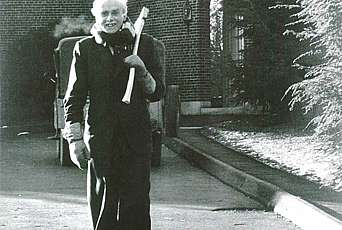
Rashid Sunyaev Awarded Max Planck Medal
Rashid Sunyaev, Distinguished Visiting Professor in the School of Natural Sciences, has been awarded the Max Planck Medal, the highest prize in theoretical physics granted by the German Physical Society (DPG), in recognition of “numerous and fundamental contributions to relativistic astrophysics and cosmology.”
The prize—inaugurated in 1929 with its first recipient, founding IAS Professor Albert Einstein—is considered one of the most prestigious in the field, with a list of winners including past IAS Faculty Freeman Dyson, and past Members such as Paul Dirac, Wolfgang Pauli, Niels Bohr, Max von Laue, and Elliott H. Lieb.
Sunyaev is cited “for the theoretical prediction of experimentally observed changes in the spectrum of cosmic background radiation passing through galaxy clusters,” having worked in numerous areas of cosmology, relativistic astrophysics, and X-ray astronomy. In addition to his twelve year long stay at the Institute, Sunyaev has been Director and Scientific Member at the Max Planck Institute for Astrophysics in Garching since 1995 (now emeritus). His contributions to physics are far-reaching, including important and influential research on cosmic background radiation and the structure of accretion disks that form when matter flows into black holes.
Following an appeal by Max Born, Albert Einstein, Max von Laue, Erwin Schrödinger, and Arnold Sommerfeld for the 70th birthday of Max Planck, the Max Planck Medal was established with the help of individual and company donors. The award consists of a gold medal and a certificate handwritten on parchment. The prize committee is composed of living medal winners and temporary members.
Formed in 1845, the DPG is one of the oldest organizations of physicists, in addition to being one of the largest, with a membership approximating 60,000. It represents both the fields of pure and applied physics, granting numerous awards in the subject and holding semi-frequent conferences.
This year's medal will be presented in March of 2023 during the DPG annual meeting in Dresden.


